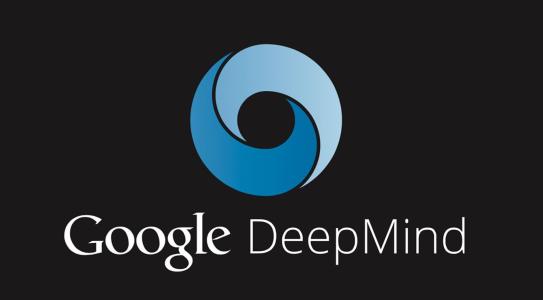Google's artificial intelligence technology DeepMind defeated the world champion in the ancient Chinese game "Go" in 2016, which was a major victory for artificial intelligence. Now, the same technology has a new goal: to improve breast cancer screening, which could directly affect millions of people around the world.

The London-based Google subsidiary said that between 2007 and 2018, Jikei University Hospital in Tokyo, Japan, received mammograms from approximately 30,000 women who would use the data to improve their artificial intelligence breast cancer detection algorithms.
According to incomplete statistics, in 2012 alone, nearly 1.7 million cases of breast cancer were diagnosed globally, and breast cancer became the fifth most common cause of cancer death in women. Mammography is currently a widely used method for early breast cancer screening.
However, according to investigations and studies, the accuracy of mammogram analysis is low today, and about 20% of mammograms have false negatives, which means that there may be cancers not detected by doctors or technicians. At the same time, false positives on mammograms are also an important issue.
In the United States, more than 50% of women who have undergone annual mammograms for 10 consecutive years have false positive results, resulting in a series of unnecessary tests and chemotherapy. “And these can put pressure on patients and “add pressure and cost to healthcare around the world,†said Dominic King, clinical director of DeepMind Health.
In November 2017, the British Cancer Research Center Empire Center announced that an alliance of top AI researchers and healthcare professionals led by King and DeepMind Health will use Google's AI technology to improve the reading and evaluation of mammograms.
Currently DeepMind Health is developing a machine learning algorithm that examines 30,000 images and 3,500 of magnetic resonance imaging (MRI) scans and historical mammograms from Optimam (a database of more than 80,000 scans extracted from NHS). An image of his artificial intelligence was trained to investigate whether his AI system could accurately detect signs of cancerous tissue. While other technology companies are also working on breast X-rays, DeepMind's machine learning technology is arguably the most advanced.
While most technologies are still in the experimental phase, some AI-based cancer tools have been used in clinical settings to identify risk factors for breast cancer. The deep learning algorithm currently used in commercial software has been able to accurately view mammograms and correctly identify abnormal areas of breast density, which is a major advancement.
Dominic King, clinical director of DeepMind Health, pointed out in a blog post that training DeepMind's AI system on data sets in other countries will help reduce possible algorithmic bias.
"When training artificial intelligence systems on data, deviations may occur, and these data do not accurately reflect the characteristics of the research object, which is a serious problem," he said. “In the field of mammography, there may be considerable differences in breast density between ethnic groups. Therefore, if modelling techniques are not built to reflect these differences, bias in artificial intelligence systems may lead to misidentification or even missed breast cancer. ."
In a paper presented at the Conference on Medical Image Computation and Computer-Aided Interventions, DeepMind researchers said they developed and plan to deploy an artificial intelligence system that can segment CT scans in a "nearly human" way. It is expected that the diagnosis will be shortened in the clinical environment next year.
While DeepMind Health has achieved some technical achievements in the field of mammography, there have been some doubts about the outside world. Currently, DeepMind Health's research does not focus on two areas that experts believe are critical to breast cancer treatment: First, determine which cancers do require treatment (although DeepMind says current research may play a role in the application); Current mammogram diagnosis is unable to capture septal cancer, a rapidly developing and often fatal cancer that occurs between screenings.
In this regard, DeepMind said that the algorithm is focusing on testing for septal cancer problems and can be applied in the future.
If DeepMind Health's AI system is successful in mammography, it will help doctors greatly reduce the time spent on screening and increase diagnostic efficiency by dozens of times. This will be a diagnosis and treatment of breast cancer in the United States and around the world. Play a major impact.
Manual Massage Foot Spa Massager
A manual massage Foot Spa Massager is a device designed to provide a relaxing and therapeutic foot massage. It is a manually operated handheld device, which means it does not require electricity or batteries to operate. The massager is made up of several parts, including the handle, rollers, and knobs.
To use the manual massage foot spa massager, you simply place your foot on a flat surface and apply the massager to the soles of your feet. The rollers and nodules stimulate the nerves and muscles in the foot, providing a deep tissue massage that helps relieve tension and pain.
The massager is small and lightweight, so you can easily take it with you wherever you go. It's also easy to clean, just wipe with a damp cloth after each use.
Overall, the Manual Massage Foot Spa Massager is a great option for those who are looking for an easy and effective way to relax and soothe their feet. It's affordable, easy to use, and can provide a range of health benefits, including improving circulation, reducing stress, and relieving foot pain and discomfort.
Manual Massage Foot Spa Massager,Portable Pedicure Tub,Bath Foot Massager,Foot Bath Machine
Huaian Mimir Electric Appliance Co., LTD , https://www.mmfootbath.com